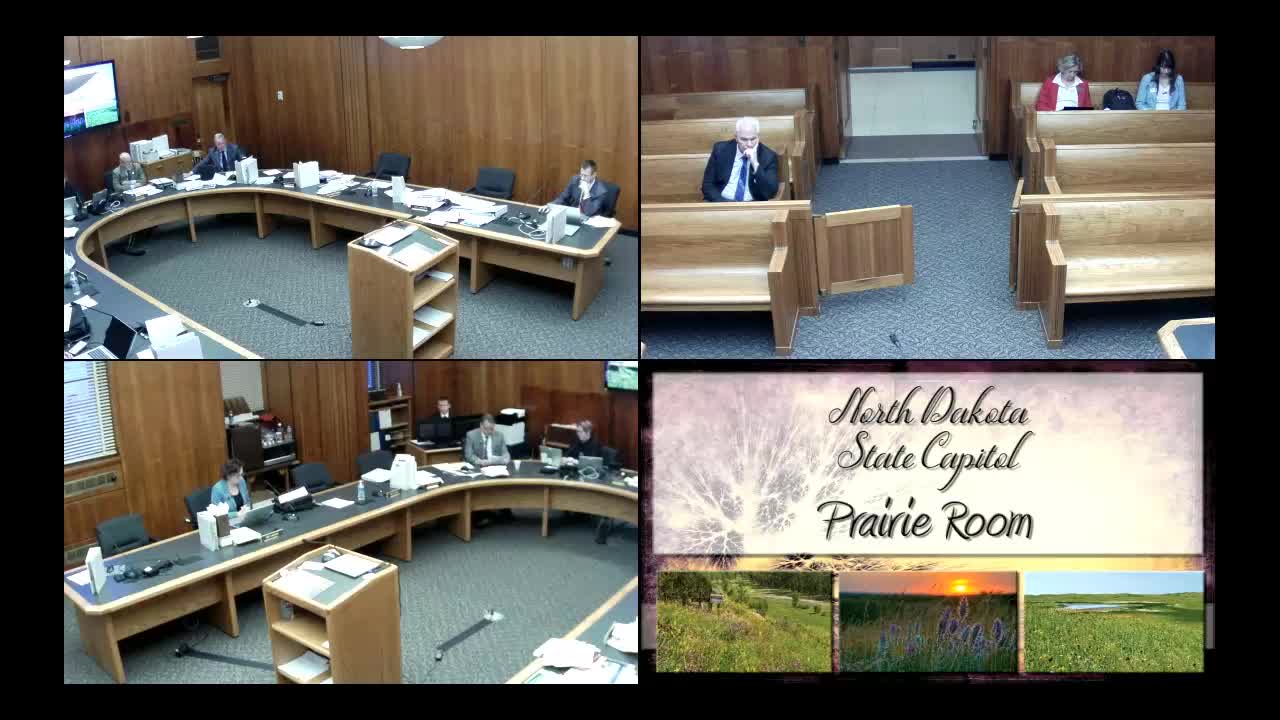Appropriations subcommittee weighs two AI bills, favors flexible grant approach and technical review panel
Get AI-powered insights, summaries, and transcripts
Subscribe
Summary
Members reviewed House Bills 1448 and 1265, with testimony distinguishing a university-centered research center (1265) from a broader grant program (1448). The committee asked staff to draft hybrid language, discussed compute credits for startups, and agreed to pause for further drafting and one or two follow-up meetings.
At a House Appropriations subcommittee meeting, members reviewed two bills aimed at supporting artificial intelligence development in North Dakota: House Bill 1265, which proposes a state information research center tied to higher education, and House Bill 1448, which creates a more flexible grant program for AI projects.
The distinction between the measures framed the discussion. "1265 is more leaning toward a research-based emphasis on AI. So the center that is identified would be tied more toward higher education," said Jerry Rostad, vice chancellor, Dakota University System. By contrast, committee members and witnesses described HB 1448 as a vehicle that could be written to allow public and private entities, nonprofits and individuals to apply for funds for compute needs or project development.
Committee members pressed for clarity on how funds would be used and who would benefit. "Compute credits" was explained by Rostad as the resources startups buy to run AI workloads: "they need some AI cycles, we need some AI data storage, so we need to buy that," he said. Members discussed whether awards should be cash grants, matching grants or in-kind credits; several legislators said many startups primarily seek capital to purchase compute.
Several legislators argued the new program should avoid duplicating existing state investment resources. "We have nearly a billion dollars on the street right now available for people to use," Representative Bosch said, listing programs such as LIFT, commerce funds and other development funds. Multiple members said that, if created, an AI-specific committee should have meaningful vetting authority so recommendations carry weight when applicants seek funding from other state sources.
Broad themes from the discussion included: - Purpose and scope: HB 1265 centers on a university-linked research entity; HB 1448 was described as a flexible grant program that could accept applications from businesses, individuals, nonprofits and public entities. - Uses of funds: Members focused on compute credits (cloud compute cycles and storage) and seed grants to move prototypes toward commercialization. - Institutional roles: Several members proposed a technical AI review committee composed of higher-education researchers and private-sector experts to evaluate applications and provide prioritized recommendations to other funding bodies. - Safeguards and locality: Representatives asked how to ensure state dollars benefit entities domiciled in North Dakota and how to avoid micromanaging private innovation.
The committee did not vote on either bill. Members directed staff to draft suggested language that could combine the broader economic-development flexibility of HB 1448 with the research connections in HB 1265, and agreed to pause the subcommittee for one or two follow-up meetings to review that draft. Representative Lausser emphasized the domicile concern: taxpayers' dollars should not subsidize out-of-state or overseas companies.
The subcommittee closed its session after agreeing to reconvene with draft language and additional suggestions on committee composition and grant criteria.
